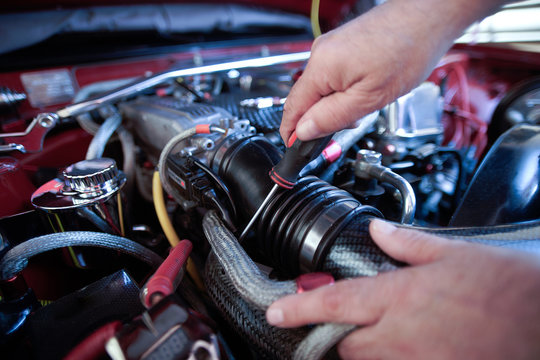Keeping your car running smoothly is important for performance, safety, and fuel efficiency. One of the best ways to achieve that is through a full tune-up. However, many drivers often wonder what a full tune-up actually includes and how much it costs. Understanding the cost and value of this service can help you make informed decisions about your car’s maintenance.
What Does a Full Tune-Up Include?
A full tune-up is a detailed maintenance service designed to keep your engine performing at its best. Depending on your vehicle type, age, and mileage, the tune-up may include several key tasks such as:
- Replacing spark plugs and wires
- Inspecting and cleaning the air and fuel filters
- Checking the ignition timing and fuel system
- Inspecting belts and hoses
- Testing the battery and charging system
- Checking engine fluids and filters
Older cars with traditional ignition systems may need more work than newer models with advanced electronic systems. The overall goal of a tune-up is to restore power, improve fuel economy, and prevent future engine problems.
Average Cost of a Full Tune-Up
The cost of a full tune-up can vary widely depending on the vehicle make, model, and the services required. On average, most drivers can expect to pay between $200 and $800 for a complete tune-up. Basic services, such as replacing spark plugs and air filters, may cost on the lower end, while a full inspection and part replacement for modern cars can reach the higher range.
For high-performance or luxury vehicles, the cost can even exceed $1,000 because of specialized parts and labor. Always check your vehicle’s service manual for recommended maintenance intervals to avoid unnecessary expenses.
If you’re located in Texas and looking for trusted Complete Tune-Ups Services in Lewisville TX, it’s worth comparing service packages to ensure you’re getting both value and quality.
Why Tune-Ups Are Important
Regular tune-ups not only extend your vehicle’s life but also help you save money over time. A well-tuned engine runs more efficiently, meaning you spend less on fuel and avoid costly repairs later. Some of the key benefits include:
- Better fuel efficiency
- Smoother engine performance
- Reduced emissions
- Fewer breakdowns
- Improved resale value
Skipping regular tune-ups can cause minor problems to grow into major repairs, such as damaged ignition coils or fuel injectors. In many cases, the cost of prevention is far lower than the cost of fixing serious engine issues.
Factors That Affect Tune-Up Costs
Several factors determine the final cost of a full tune-up, including:
- Vehicle Type: Modern vehicles often have complex systems requiring special tools or diagnostic tests.
- Parts and Materials: Prices for spark plugs, filters, and fluids vary depending on the brand and quality.
- Labor Costs: Rates differ from one location to another and depend on the shop’s expertise.
- Condition of Your Vehicle: Cars that haven’t been serviced in a long time may need additional parts or repairs.
- Local Market Rates: Costs can vary depending on your area or city’s average maintenance prices.
By understanding these factors, you can plan ahead and budget effectively for your next tune-up.
Signs Your Car Needs a Tune-Up
It’s not always easy to know when your car needs a tune-up, but there are several common signs that shouldn’t be ignored:
- Reduced fuel mileage
- Rough idling or engine misfires
- Slow acceleration
- Dashboard warning lights
- Strange noises or vibrations
If you experience any of these issues, it’s best to schedule a tune-up right away. Ignoring them can lead to more serious problems and higher repair costs in the future.
Choosing a Reliable Auto Repair Shop
Finding a trustworthy auto repair shop is just as important as the service itself. A reliable mechanic will inspect your vehicle thoroughly, explain the work needed, and use quality parts. Reading customer reviews and asking for estimates can help you find a shop that offers fair prices and honest advice.
Many car owners in Texas rely on JC Auto Repair LLC for professional and dependable service. The company has earned a strong reputation for its skilled technicians and attention to detail. They focus on delivering value-driven maintenance without unnecessary upselling, which helps customers save time and money. Whether you need diagnostics, part replacements, or scheduled maintenance, their team provides high-quality care for every type of vehicle.
How Often Should You Get a Tune-Up?
The frequency of tune-ups depends on your car’s age, driving habits, and manufacturer recommendations. For most vehicles, a tune-up is suggested every 30,000 to 100,000 miles. Newer models with advanced engines may go longer between tune-ups, while older cars or those driven in extreme conditions might need more frequent service.
Always check your owner’s manual or consult a trusted mechanic to determine the ideal schedule for your vehicle.
Saving Money on Tune-Ups
While tune-ups are essential, you can still manage the costs wisely:
- Compare quotes from different shops.
- Keep up with regular maintenance to prevent larger repairs.
- Use high-quality parts for longer-lasting performance.
- Look for local deals or seasonal service discounts.
If you’re located near Lewisville, exploring Complete Tune-Ups Services in Lewisville TX can help you find affordable yet reliable options without compromising on quality.
Conclusion
A full tune-up is a key part of keeping your car running efficiently and avoiding costly breakdowns. The average cost of a full tune-up typically ranges between $200 and $800, depending on your car’s make, model, and maintenance needs. Investing in regular tune-ups not only improves performance but also adds years to your vehicle’s life.
When it comes to trusted service and fair pricing, JC Auto Repair LLC stands out as a reputable choice among car owners. Their commitment to quality and customer satisfaction makes them a reliable partner for your car’s maintenance journey.

